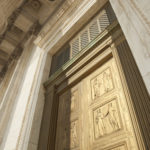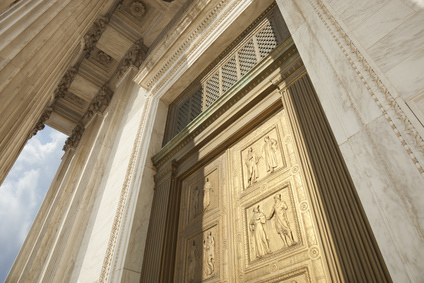 On June 28, the U.S. Supreme Court granted a Petition for a Writ of Certiorari in Obduskey v. McCarthy & Holthus LLP that presents the question “whether the FDCPA applies to non-judicial foreclosure proceedings.”
On June 28, the U.S. Supreme Court granted a Petition for a Writ of Certiorari in Obduskey v. McCarthy & Holthus LLP that presents the question “whether the FDCPA applies to non-judicial foreclosure proceedings.”
The borrower in the underlying case defaulted on his home loan and the mortgage servicer hired a law firm to pursue a non-judicial foreclosure. The borrower informed the law firm he was disputing the debt and the law firm, without responding to the dispute, proceeded with the non-judicial foreclosure.
The borrower then filed a lawsuit against the mortgage servicer and law firm alleging, among other things, violation of the FDCPA by proceeding with the foreclosure without first providing verification of the debt in response to his dispute as required by 15 U.S.C. § 1692g.[1] The mortgage servicer and law firm filed motions to dismiss.
The trial court granted the motions to dismiss in Obduskey v. Wells Fargo, No. 15-cv-01734-RBJ, 2016 U.S. Dist. LEXIS 103281 (D. Colo. July 19, 2016). The court determined the mortgage servicer was not a “debt collector” under the FDCPA because the loan was not in default when it began servicing the loan.[2]
The court also found the law firm’s foreclosure activities were “outside the scope of the FDCPA,” relying upon what it described as the majority view. Additionally, the borrower’s claim against the law firm was determined insufficient to state a claim under the FDCPA because it failed to allege the law firm “took any action to obtain payment on a debt.” The borrower appealed.
On Jan. 19, the U.S. Court of Appeals for the Tenth Circuit affirmed the District Court’s decision in Obduskey v. Fargo, 879 F.3d 1216 (10th Cir. 2018). First, the court agreed the mortgage servicer was not a debt collector for essentially the same reasons stated by the district court.
The Court of Appeals next determined that non-judicial foreclosure proceedings are not covered by the FDCPA, despite findings to the contrary by three other Circuits (the Fourth, Fifth, and Sixth) and the Colorado Supreme Court. The borrower argued that the “ultimate purpose” of any foreclosure action, including non-judicial, is repayment of money, relying on a decision from the Sixth Circuit.[3]
Disagreeing, the court explained that a non-judicial foreclosure is not an attempt to collect money since it “does not preserve to the trustee the right to collect any deficiency in the loan amount personally against the mortgagor,” as distinguished from a judicial foreclosure.
The borrower’s Petition for a Writ of Certiorari explains well the importance of resolving this issue:
“All sides agree that this binary question of federal law has divided the circuits, and these courts have split after exhaustively considering each side of the debate. The confusion is extraordinary and entrenched: the question has generated over a hundred conflicting decisions and an acknowledged split among multiple appellate courts. There is no hope of the dispute dissipating on its own.”
The Petition for a Writ of Certiorari, the Brief for the Respondents in Opposition and Reply Brief for the Petitioner are available online and, of course, provide excellent in-depth analysis of the arguments on both sides of this issue.
[1] “If the consumer notifies the debt collector in writing within the thirty-day period described in subsection (a) that the debt, or any portion thereof, is disputed . . . the debt collector shall cease collection of the debt, or any disputed portion thereof, until the debt collector obtains verification of the debt . . . and a copy of such verification . . . is mailed to the consumer by the debt collector.”
[2] The FDCPA’s definition of “debt collector” excludes “any person collecting or attempting to collect any debt owed or due or asserted to be owed or due another to the extent such activity concerns a debt which was not in default at the time it was obtained by such person.” 15 U.S.C. § 1692a(6)(F)(iii).
[3] Glazer v. Chase Home Fin. LLC, 704 F.3d 453 (6th Cir. 2013).


